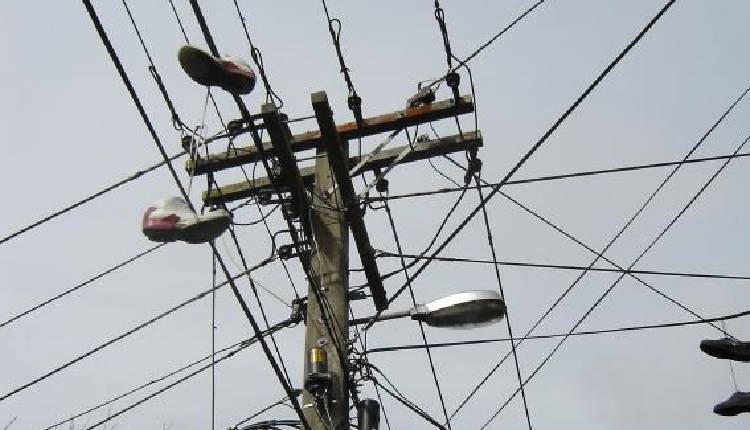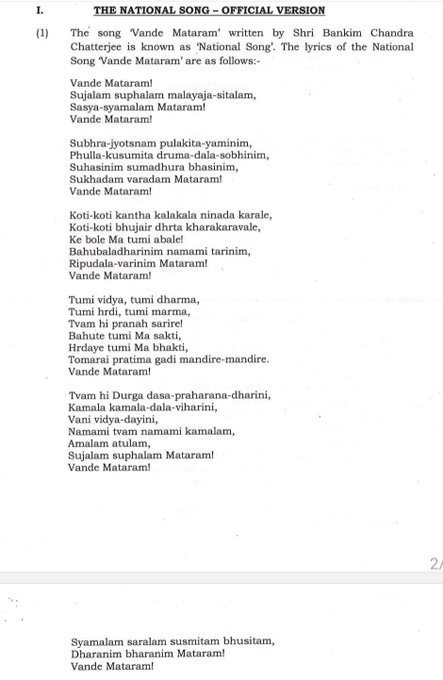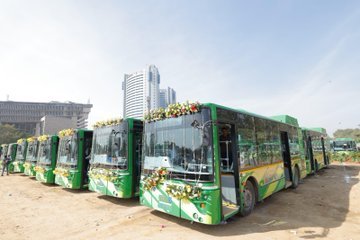Kolkata, 29th April 2024: J D Birla Institute in collaboration with Indo British Scholars Association (IBSA) & British Council hosted the illustrious fashion show KALEIDOSCOPE 2024 on 26 April 2024 at the Eastside Pavilion, Nicco Park, Kolkata which showcases sustainable fashion with each ensemble telling a unique story of creativity, sustainability and cultural renaissance of Batch (2021-2024).
The event was graced by the presence of Chief Guest, Kiran Uttam Ghosh, Designer, Guest of Honor, Alison Barrett, Director, British Council India, Andrew Fleming, British Deputy High Commissioner to Kolkata, Debanjan Chakrabarti, Director British Council East and Northeast India, Hugh Boylan, Australian Consul General, Elizabeth Lee, Director American Center, Anne Vasquez, Acting Consul General US Consulate and the members of our co-host, Rajive Kaul, Chairman, Presidents Council, IBSA and Chairman, Nicco Engineering Services Ltd; and Founder & Promoter of Nicco Parks and Resorts Limited, Subrata Paul, President, IBSA and Director, BTL EPC Ltd and Advisor, Simplex Infrastructure Ltd., Reetasri Ghosh, Chair Programs Council IBSA and Educational Coach and Leadership Development Facilitator along with Major General V N Chaturvedi (Retd.), Secretary General, Vidya Mandir Society, Vasusri Jhaver, Member Governing Council of Schools under Vidya Mandir Society and an Educationist and Deepali Singhee, Principal, J.D. Birla Institute and the jury Prof. (Dr.) Bhavna Chanana, Director and Professor, Amity School of Fashion Technology, Mumbai, Ravi Bhalotia, Director, Aarbee, Kolkata and Prerna Mundra, Founder, Parfait (an alumnus of JDBI) whose unwavering support contributed to the event’s grandeur.
Alison Barrett MBE, Director British Council and Minister Culture and Educational Affairs, British High Commission New Delhi said “I’m delighted to be here in Kolkata to take part in the sustainable fashion show by students of J.D. Birla College and supported by Indo British Scholars’ Association, IBSA. The show celebrates the best of India and the UK in education and culture, and strengthens the ‘Living Bridge’ pillar of UK alumni in India who connect our two nations.”
Rajive Kaul, Chairman President’s Council IBSA said “It was yet again a great privilege for IBSA to collaborate with the JD Birla Institute for the second time to bring to a large audience a truly outstanding Fashion Show on sustainable and eco-friendly designs and fabrics. The BSc (Hons) final year students did an excellent job and I am confident that they truly represent the ‘Fashions of Tomorrow My congratulations go out to them, their teachers and their Principal Dr Deepali Singhee.
Subrata Paul, President, IBSA said “This sustainable fashion show is one of our key flagship events. This engagement is one of the ways to demonstrate IBSA’s commitment towards sustainability and tackling the challenges of climate change. The retail and fashion industry plays a crucial role towards addressing climate change and the key is by innovating use of textiles and fabrics. We are also keen to work with the youth in increasing awareness of sustainable fashion. It’s great to partner with J.D. Birla Institute and British Council for this initiative. I really thank you our sponsors who have supported this event”.
Prof (Dr.) Bhawana Chanana, Director and Professor, Amity School of Fashion Technology, Mumbai said “J.D. Birla Institute’s graduating batch of students put up an impressive showcase of Eco fashion at their Kaleidoscope 2024. Sustainability was an apt theme which was ideated and rendered aesthetically. My heartiest congratulations to the students and the entire team of J.D. Birla institute for an impressive showcase”.
Prof. (Dr.) Deepali Singhee, Principal, J.D. Birla Institute said “JDBI has always adhered to high teaching standards with state-of-the art infrastructure. Our Textiles & Fashion Technology students have flourished wherever they have gone after earning a degree from one of India’s finest universities, Jadavpur University. The fashion show highlights how fashion can be fabulous while also being sustainable and kind to the environment.”
Every piece of six collections tells a story of being stylist while also being eco conscious. It showcases how fashion can be fabulous while also being sustainable and kind to the mother earth. Our designers have upcycled old vintage clothing with more contemporary styles and have used organic fibres and waste materials to create eco-friendly stylish looks. This justifies the selection of the central theme, ‘ecofash’.
Ensemble-1: Sunset Mosaic (Beachwear adventure in patchwork from waste)
For designers who are committed to sustainability, the journey begins with piles of abandoned textiles, neglected scraps, and forgotten items. Instead of viewing these objects as waste, our designers have seen them as untapped potential, waiting to be transformed into something extraordinary with an objective to lessen the fashion industry’s environmental footprint. The inspiration for making garments out of waste materials is deeply entrenched in the values of sustainability, creativity, and resourcefulness. The designers have combined environmental concern and artistic ingenuity to produce an incredible collection of beachwear ranging from shorts, shirts, short dresses, sarong, kaftans, off- shoulder & A-line dresses utilizing the patchwork technique. Whether you’re lounging by the pool, strolling down the beachfront, or dancing under the stars at a beach bonfire, this patchwork beachwear collection in colourful prints is sure to turn heads.
Ensemble-2: Retrofitted Renaissance (A modern circular twist to tradition)
In the world of fashion, creativity must integrate with sustainability, resulting in groundbreaking designs that can captivate both the eye and conscience. In this spirit, this collection is a re-invention journey that demonstrates how new life can be infused into abandoned materials to create repurposed couture. The ‘Shirt’, which is the cornerstone of practically all wardrobes, has been used as a canvas for artistic reinterpretation to produce high fashion garments. Using the principles of upcycling, old shirts have been methodically dis-assembled and the fabric pieces repurposed to produce exquisite patterns for western wear. From tailored silhouettes to voluminous drapes in rich wine, emerald and dark blue colours using satin fabric, each pattern represents the concept of modern couture while paying homage to its humble origins. Each outfit serves as a reminder of the power of reinvention, encouraging viewers to examine the value of discarded materials and adopt a more sustainable lifestyle. The avant-garde style has been enhanced with embellishments made of various materials such as leather, sequins, and beads.
Ensemble-3: Royal Threads (Reinterpreting the Rajputana through Benarasi craftsmanship)
The Sari is the most iconic piece of Indian traditional clothing that holds immense sentimental value and is culturally significant across communities in India. However, as changing fashion trends of the new generation has shifted towards more ‘easy to wear clothing, the Sari is gradually losing its connectivity with customs and traditions. With no room in the GenX wardrobe, the old sari heirlooms are lost. Upcycling old saris into new garments, is a celebration of history, creativity, and sustainability. By recreating with these timeless textiles, modern student-designers have acknowledged and honoured historical workmanship while embracing future opportunities for revival and diversification. To appeal to modern sensibilities, the collection reinterprets traditional Rajputi elegance and silhouettes like lehengas, anarkalis, and bandh galas with modern cuts and designs. Rich palette of jewel stones like deep red, royal blue, emerald green and regal purple that are reminiscent of the Rajputana have been featured in the collection. The aura and grandeur of the royal Rajputs has been recreated by using vintage Banarasi silk brocades collected from old fabric-scarp dealers.
Ensemble-4: Biodiversity (Fashion extravaganza from sustainable new-age fibres)
In the fast-paced world of fashion, the inspiration for items made from sustainable fibres stems from a sense of responsibility and respect for Mother Earth. As the fashion industry embraces sustainability, designers are utilizing eco-friendly fibres as a canvas for their creations, drawing inspiration from nature and the pressing need for change. This collection has been inspired by a goal to reduce the environmental impact of the textile industry. Designers have used a range of sustainable-fibre fabrics that are renewable, biodegradable, and ethically sourced from biodiversity like bamboo, eucalyptus, aloevera, orange, lotus, soybean, milk and banana. Flowing dresses, trousers, skirts and other pieces exudes seamless sophistication and eco-friendliness, inviting the wearer to embrace comfort and style that are in harmony with nature. The collection has been created to inspire and empower audiences to make more ecologically conscious fashion choices.
Ensemble-5: Bottled Swagger (Sustainable symphony of stylish jackets from RPET fabric)
Recycled polyethylene terephthalate also commonly known as RPET is made from post-consumer plastic bottles. It provides an appealing solution to the concerns of textile waste and resource depletion. By recycling and repurposing discarded materials, we can lessen our dependency on virgin resources, while simultaneously reducing the adverse environmental effect of textile production. The benefits of recycled textiles are numerous, ranging from lowering carbon emissions to reducing water consumption, and they provide a path towards a more regenerative future. Beyond the glitz of the runway, this collection thus narrates a deeper story of social and environmental responsibility. It inspires a shift towards more sustainable practices in the fashion industry. From elegant lines to bold designs, each jacket demonstrates that sustainability and elegance do not have to be mutually exclusive. From fitted trench coats to cozy puffer jackets, each pattern has been made to precision highlighting the distinctive properties of RPET fabric.
Ensemble-6: Elements (Riches from waste)
Inspired by the premise that true riches are found in resourcefulness rather than extravagance, “Elements: Riches from Waste” emerges as a celebration of sustainability and the transformational power of creativity to convert trash into treasure. From simple wires and damaged motherboard components to discarded packaging and plastic fragments, designers have discovered a treasure trove of beauty waiting to be discovered in the trash around them. This combination emits a powerful zest for creativity, reflects the transformative power of sustainability, and combines fashion inspired from the elements of nature. Jacket made from reused wrappers gleams in yellow and orange, representing the ‘fire’ element; dress carved from a discarded motherboard capturing the sense of the ‘earth’ element; clothing made from recycled plastics capturing the ethereal element of ‘air’ billowing with grace; gowns decorated with wires resembling the cascading flow of ‘water’ in elegant ripples have been showcased. Plastic, once derided for its environmental impact, has been reinvented as a symbol of wealth and extravagance in the form of high-fashion statement pieces using creative procedures and avant-garde designs.
The four year B.Sc. (Hons.) course in Textiles & Fashion Technology is spread over eight semesters under the newly introduced National Education Policy and focuses on a variety of subjects from three major domains: textile technology; fashion and textile design; and garment manufacturing and marketing. The course has a judicious mix of theoretical and practical subjects with inclusion of research based papers so that the students can cultivate their creativity, power of thinking independently, and with originality. Students are thus not only taught the theoretical parts of the disciplines, but also exposed to the practical, skill-based, and creative components of their particular subjects. The curriculum covers diverse range of subjects like fibre science; textile processing, dyeing, printing & finishing; textile testing and quality control; fabric manufacture and weaving; pattern making, sewing and draping; garment manufacturing technology; fashion design; textile design; CAD; marketing & entrepreneurship and traditional textiles of India among others. The course’s distinguishing feature is its regular field trips and a yearly education excursion to develop practical experience and understanding. Students receive internship training and placement opportunities. To promote entrepreneurship students work with rural artisans to create diversified products with an aim to foster livelihood for the craftsmen while also safeguarding the endangered Indian handicrafts. Additionally the programs also facilitate self learning and independent working through seminars, term papers and projects. Some of the TFT alumni are well placed. India Today and the Week selected the programme as the best in Kolkata under the private institute category consistently over the last few years.
The Department boasts of state-of-the-art and well equipped laboratories on pattern making & sewing; draping and garment construction; dyeing, printing & processing; weaving studio; CAD studio; design studio; textile and garment testing and analysis, etc. The library has an appreciable collection of over 3000 books on textiles, some of which are rare collections. The department also has a resource centre on traditional textiles of India.
The course offers students with ample opportunities to assess their abilities, aptitudes and interest and introduces them to varied jobs and careers. It prepares them for jobs as merchandisers, quality control managers, designers and promotes entrepreneurial skills for self-employment. The department’s alumni are well placed in several garment and textile units.
With an aim to provide industry-oriented education, equip students with the ability to meet the challenges of this dynamic industry and develop entrepreneurial skills, students are encouraged to put-up a fashion show every year to showcase their creativity and talents earned during their three year journey at the Institute.
About J D Birla Institute:
J.D. Birla Institute (JDBI) is a private, unaided institute of higher learning which is affiliated to the Jadavpur University since 1963. In acknowledgement of its continuous quest for excellence and the exemplary standards it has set and maintained through the decades, JDBI was awarded the highest possible grading of “A” by National Assessment and Accreditation Council (NAAC) in 2010. Several rating organisations, including India Today, The Week, and Times Magazine, have placed the Institute as one of the country’s top higher education institutions. The Institute has also earned awards and recognition from ASSOCHAM, ET-TIMES NOW, and the Lions Club of Kolkata. The college regularly participates in the NIRF ranking under the Ministry of Education, Government of India.
The Institute offers eleven programmes covering both the undergraduate and post-graduate spectrum. They include four professionally oriented under-graduate B.Sc courses (Food Science & Nutrition Management; Textiles & Fashion Technology; Interior Designing and Human Development), Commerce (B.Com) and Management (BBA) apart from one post-graduate-diploma in Dietetics & Applied Nutrition. Three post-graduate M.Sc courses (in Food & Nutrition, Textiles & Clothing, and Human Development) and M.Com are also offered.




